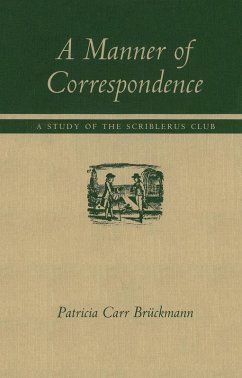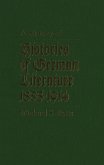Tracing their shared vision in such works as Memoirs of Scriblerus, Gulliver's Travels, The Beggar's Opera, and The Dunciad, Bruckmann identifies the pastoral as their common ideal and analyses their shared hostilities and anxieties regarding the erosion of that ideal in an age they saw as grotesquely degenerate. She points out that in many ways the group was out of step with its own time and much more attuned to ancient and traditional images of felicity and to ancient authors who subscribed to these values. The influence of Erasmus and Sir Thomas More, who both figure as icons in the Scriblerians' work, as well as such authors as Seneca, Lucian, Lucius Apuleius, and Francois Rabelais is explored in detail. Looking forward, Bruckmann highlights the Scriblerian influence on writers such as Henry Fielding, Lawrence Sterne, Vladimir Nabokov, John Barth, Robert Coover, and James Joyce, offering a place for dialogue between modern humanists and their eighteenth-century forebears.
Dieser Download kann aus rechtlichen Gründen nur mit Rechnungsadresse in A, B, BG, CY, CZ, D, DK, EW, E, FIN, F, GR, HR, H, IRL, I, LT, L, LR, M, NL, PL, P, R, S, SLO, SK ausgeliefert werden.









